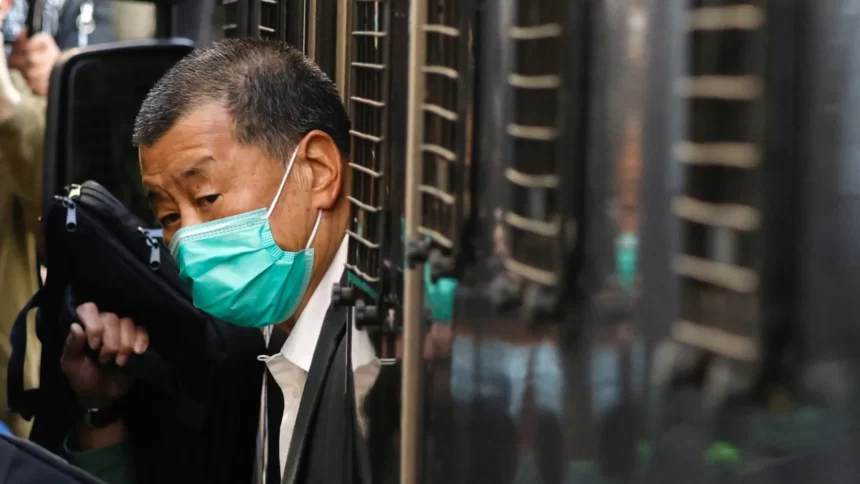As the national security trial of prominent pro-democracy figure Jimmy Lai commenced in Hong Kong, a judge denied his attempt to dismiss a charge of seditious publication, setting the stage for a high-stakes legal battle. Lai, a jailed tycoon and vocal advocate for democratic principles, could potentially face life in prison if convicted of “collusion” with foreign forces under Beijing’s national security statute.
The trial, which began on Monday, has garnered international attention due to its implications for the state of political dissent in Hong Kong. Lai is not only charged with “collusion” but also faces an additional accusation of “conspiracy to produce seditious material.” The latter charge falls under a colonial-era legislation, carrying a comparatively less severe jail sentence if convicted.
One key contention in Lai’s defense has been the timing of the sedition allegation. His legal team argued that the prosecution’s initiation of the case was in violation of Hong Kong’s criminal procedure, as it allegedly began too late. This strategic legal move underscores the importance of procedural adherence in a case that holds broader implications for the rule of law in the semi-autonomous region.
About Hong Kong Trial:
The seditious publication charge against Lai revolves around the content disseminated by his media outlets, known for their critical stance against the Chinese government. The accusation aligns with Beijing’s national security law, which grants authorities significant powers to combat perceived threats to national security, including alleged collusion with foreign entities.
Observers fear that the trial could further stifle dissent in Hong Kong, where a crackdown on pro-democracy activists and media figures has intensified in recent years. Critics argue that the national security law is being used as a tool to suppress political opposition, eroding the autonomy promised to Hong Kong under the “one country, two systems” framework.
As the legal proceedings unfold, the international community closely watches the developments, with human rights advocates expressing concerns about the implications of Lai’s trial on freedom of expression and the broader democratic values that Hong Kong has historically embraced. The outcome of this trial will undoubtedly shape the future landscape of political dissent and civil liberties in the region.
